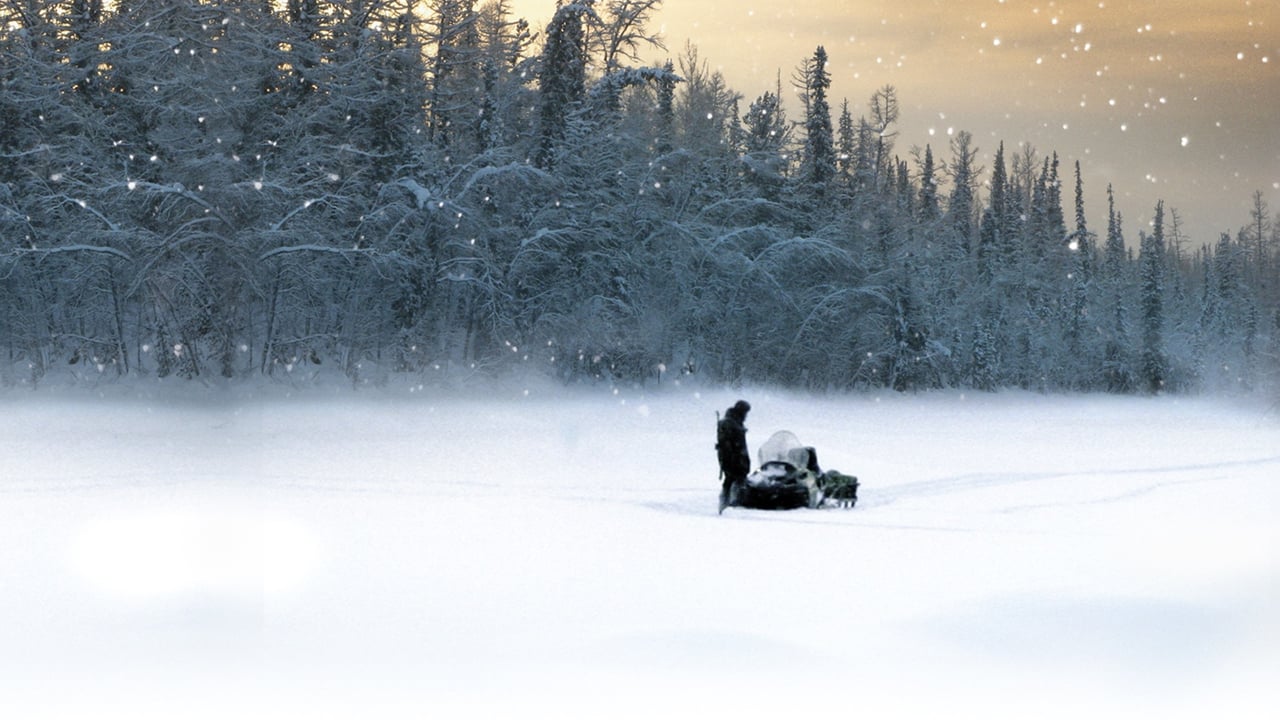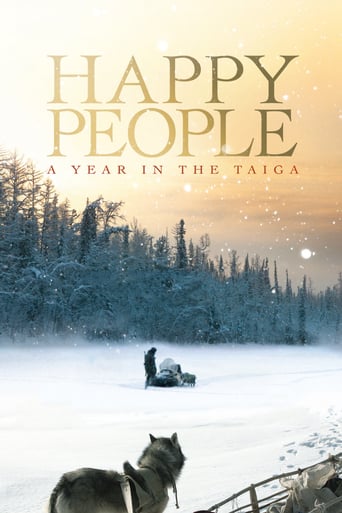



Awesome Movie
This movie was so-so. It had it's moments, but wasn't the greatest.
View MoreBlending excellent reporting and strong storytelling, this is a disturbing film truly stranger than fiction
View MoreBy the time the dramatic fireworks start popping off, each one feels earned.
View MoreThis documentary depicts the harsh life lived by some inhabitants of Bakhtia, Russia, a small village in Siberia (55 degrees north, 92 degrees east). Bakhtia is isolated, available only by ship and helicopter in the summer months. Otherwise the people there are on their ownThe movie concentrates on one Gennady Soloviev, a hardy fur trapper and hunter. Gennady is pretty much occupied full time just making a go of it--setting traps, stocking caches in summer for winter use, chopping wood, and so forth. Much of the year in the Bakhtia area is spent in sub-zero temperatures, with readings of -30F not being unusual. I am not too keen on being out at sub-zero temperatures for any great length of time. When Gennady sees that snow has damaged one of his cottages he has no problem with diving in and repairing it in -30F weather. The making of a canoe from scratch after downing a tree, using only an ax, was impressive--it is my observation that that is not a common talent in 21st century America. Paddling against the current on the Yenisei River looks to be an activity only for the strong. Watching this made me realize how far from elementary survival concerns most people in the United States are.The movie credits Dmitry Vasyukov as co-director. Vasyukov actually filmed all of the material for a four hour documentary and, for this movie, Herzog has taken that footage and edited it to 90 minutes, adding his narration. It would be of interest to see the original, since I suspect Herzog has imposed a certain idealized romanticism that reflects his own views rather than those of Vasyukov.For example, Herzog comments that, "They live off the land and are self reliant, truly free. No rules, no taxes, no government, no laws, no bureaucracy, no phones, no radio, equipped only with their individual values and standard of conduct." I think no society, however small, can function without understood rules and some form of structure. Gennady has the right to trap on a certain land area, such area being delineated by government oversight. The self reliance is not totally true. How did Gennady come by his snow mobile and chainsaw? Where did the gas come from to power those machines? Supplies were flown in by helicopter and ship; how were those supplies paid for? I wanted more information on the local economy. Since trapping sables was prized, I assume that sable fur was sold to high end consumers as part of how the trappers could afford to buy their supplies.As for happiness, I did not see these people as being exceptionally happy. Gennady admitted to despising some trappers that he saw as greedy. Is Gennady any happier than a computer programmer in Los Angeles who is passionate about her work?
View MorePresumably the title is meant to be somewhat ironic; the people depicted certainly aren't happy all the time, but have a rugged life.The box is not entirely accurate; it says that it describes a way of life little changed for centuries. However, while the movie does describe a group of natives whose way of life is dying out, the film concentrates mainly on people sent in by the Soviet government decades ago to do hunting and trapping.Unlike other Herzog movies I've seen, the people depicted are far from quirky or weird. They are normal and rational people living the only way to live in their locale, trapping furs to sell, buying few outside supplies (such as tools and snowmobiles) as needed, but otherwise building their own cabins, trapping and hunting their own food, depending on their dogs but treating them without sentiment. The film concentrates mostly on the trappers and their routines; you see little of their wives and families.The people are happy in the sense that they have the freedom to act on their own instead of having to follow orders, I assume.
View MoreI was almost immediately enthralled with this documentary about the life of a trapper in the boreal forest of Siberia in the town of Bakhta (population around 300). I did not expect it to be so interesting, but looking at the credits of director Werner Herzog, 68 in all, I am not so surprised. Apparently I have stumbled upon a great director of documentary films that previously I knew nothing about. Also directing was Dmitry Vasyukov.What makes this work so well is the clear, concrete detail shown as the trapper (Nikolay Nikiforovitch Siniaev, I believe) goes about what he has to do throughout the entire year in order to survive in the harsh climate. What must be done in spring as he prepares for the melting of the snow (and the mosquitos!) is very different from what must be done in the dead of winter when there is ice on the man's beard. Interesting enough during both winter and summer they fish the river for pike, breaking ice in winter and throwing nets in the summer, which they either smoke or feed to the dogs.The dogs! In this film we can see clearly the essential symbiotic relationship between humans and dogs. It is not clear that the trapper would be able to do his work without the help of his dogs. The dog's ears and its sense of smell augment the man's knowledge and experience so that together we see them work as a team. When the man makes a mosquito repellent from the bark of a birch tree (I think it was birch) he rubs it on his dogs as well.The amount of carpentry and other wood working that the trapper has to do, including making craft to navigate the rivers and streams, is surprising. Of course the traps he makes are made mostly of wood. He traps sable for its valuable fur. To do so he has to place traps over a wide area which means he has to maintain various cabins in the woods that he and whoever is working with him can stay overnight since the treks cover many miles of frozen ground. We see him knocking down the snow piled high on the cabins, repairing damage made by bears, etc.The idea that the people are happy and especially the trapper cannot be argued with even though their lives are hard. The life's lesson here is that when a man is consumed with work that he has to do, that is necessary for his survival, and it is work that he can do, that he has developed the skills to do, that man is happy. He is happy partly because he is close to nature; in fact he is immersed in nature in a way similar to way hunters and gathers were in Paleolithic times. It can be argued that that world, however challenging, is one that is natural for humans. (Of course there are other natural environments, some very different such as an equatorial jungle demanding a different set of skills.) After watching this I intend to watch some of Herzog's other films.By the way, Klaus Badelt's score is beautiful and haunting.--Dennis Littrell, author of "Cut to the Chaise Lounge or I Can't Believe I Swallowed the Remote"
View MoreHappy People: A Year in the Taiga (2010) *** 1/2 (out of 4)This documentary was co-directed and narrated by Werner Herzog but it didn't gather as much attention as some of the filmmaker's previous films, which is a shame because this here is another winner. The film covers a full year with several trappers as we see what they seasonal lives are all about. This includes various traps that they must make, issues they face in the wilderness and some of the most fascinating stuff dealing with them living in the bitter cold winters where temperatures reach fifty-below zero. HAPPY PEOPLE: A YEAR IN THE TAIGA is a really good film and nothing short of what you've come to expect from Herzog. From what I've read, co-director Dmitry Vasyukov actually spent the time in Bakhtia, Russia and the footage was then turned over to Herzog. Even though the famed Germany director wasn't actually on the ground, this here still comes across as his film and it contains that certain love and joy that some of his best work has. This film is yet another in a long line of films that take a look at people living in horrid condition yet being completely happy in their environment. Herzog has always been able to take "off" characters and make them seem normal. That's what happens here as we track these trappers as they go from one hunt to another while having to deal with nature and come up with creative ways to trap and live. Herzog offers up his typical great narration but the real people are certainly the stars here as we get to really know them and understand why they love doing what they do.
View More